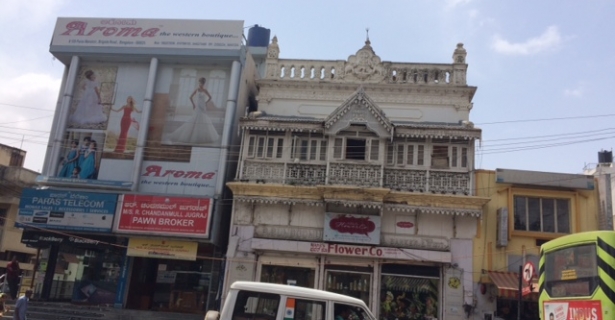This summer I am spending two months in Bangalore, India working with the Center for Financial Inclusion at Accion on a relatively new work stream: financial inclusion for people with disabilities. The World Bank estimates that between five and eight percent of India’s population has a disability.[1] Reaching this underserved group is critical for the goals of full financial inclusion, which PM Narendra Modi himself has recently prioritized, to be realized. People with disabilities, from the physical to the mental, are often marginalized from a young age, and this exclusion is compounded later in life. Without education or other social opportunities early on, it’s much more difficult to access a loan or to start an income generating scheme later on.
There are quite a few things about Bangalore that I didn’t know on arrival - how to take an auto-rickshaw, how to cross a street with no lanes or stop signs, or the fact that with around 10 million residents in the metropolitan area, it is only the fifth most populous city in India. Another interesting discovery of the past weeks is the extent to which this city is a hub for startups and social entrepreneurs. Not only are the call centers and IT companies that most of us have heard about here, I’ve also been proudly informed that Bangalore ranks just after Silicon Valley and Tel Aviv for “best startup scene” in the world. Wherever it may truly lie on that list, there’s no doubt that India is going through a startup boom. And while in the U.S., the craze over tech investing is starting to look a little suspicious, the field here seems to be wide open. Wedged among the vividly painted Hindu temples, mosques, busy Ramadan markets and nonstop traffic, I’ve also noticed an array of energetic startups, social businesses, impact investors, accelerators, and coworking spaces. Understanding why India, and why Bangalore, are questions whose answers get to the heart of India’s economic experience of the last decades.
Some of these businesses are running with a trend that seems bound to peter out sooner than later. But alongside the rush to create app after app for higher end consumers, there is also a well-organized group of social entrepreneurs in Bangalore and other Indian cities working to extend services to the base of the pyramid. Some of the companies they work for, like Varthana, MeraDoctor, and CreditMantri, received funding from Accion’s Venture Lab. Unitus Capital and Unitus Seed Fund, two arms of a company that provides “market solutions to global poverty,” work out of the same office building as Accion’s Bangalore hub. And Accion, while fully a non-profit, enthusiastically supports the idea that commercial microfinance institutions and technology companies that advance financial inclusion can successfully produce that elusive “double bottom line.”
Since my job here is to promote partnerships between NGOs that serve people with disabilities and commercial MFIs, I have been thinking about the technical and cultural divides between these two worlds, and the mistrust they often seem to have for one another. Do for-profit enterprises offer higher quality services to the poor than NGOs that exist on the margins of financial sustainability? Is the base of the pyramid truly served best by those who seek to make a profit from them? I am most interested in understanding how the mindsets these professional realms cultivate in their work and staff can productively collaborate in order to share talent and ideas and to solve pressing social issues.
[1] People with Disabilities in India: From Commitments to Outcomes. Human Development Unit, The World Bank (July 2009).,xi


Add new comment